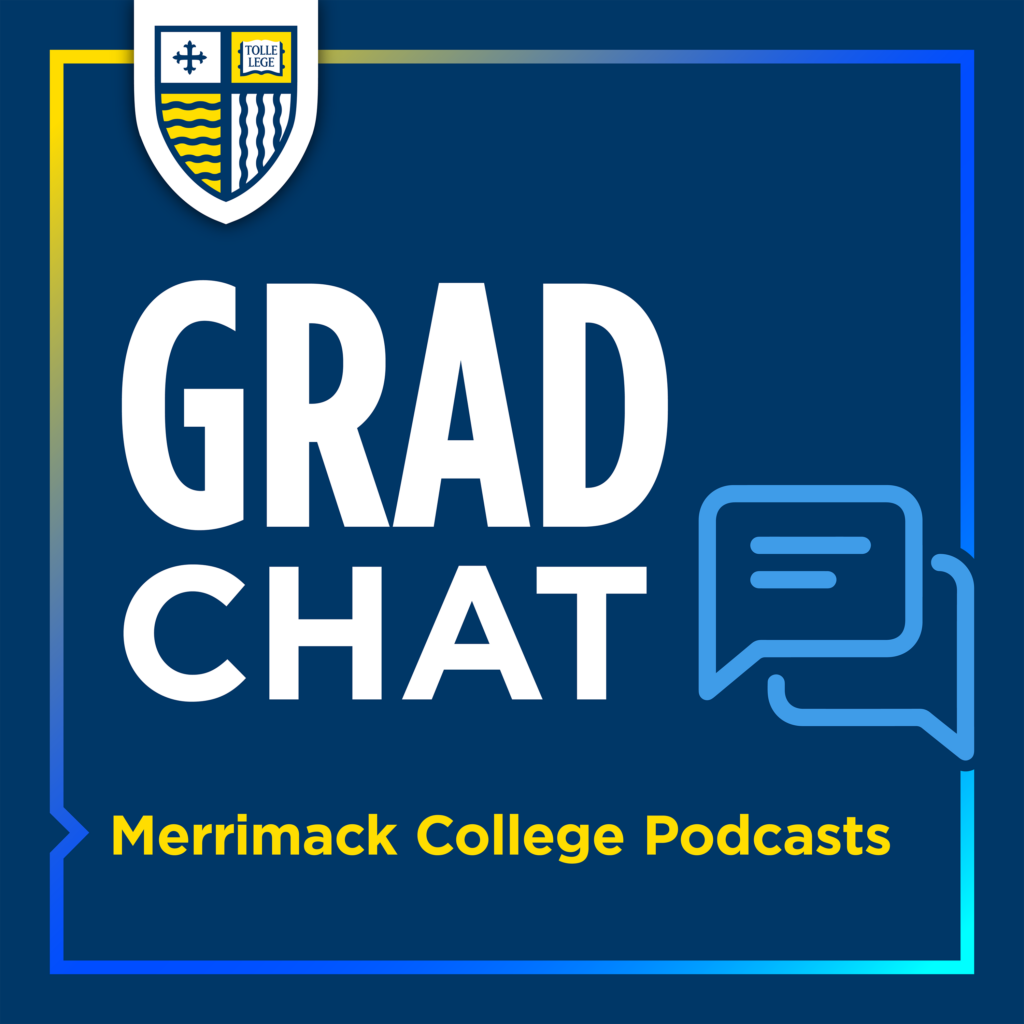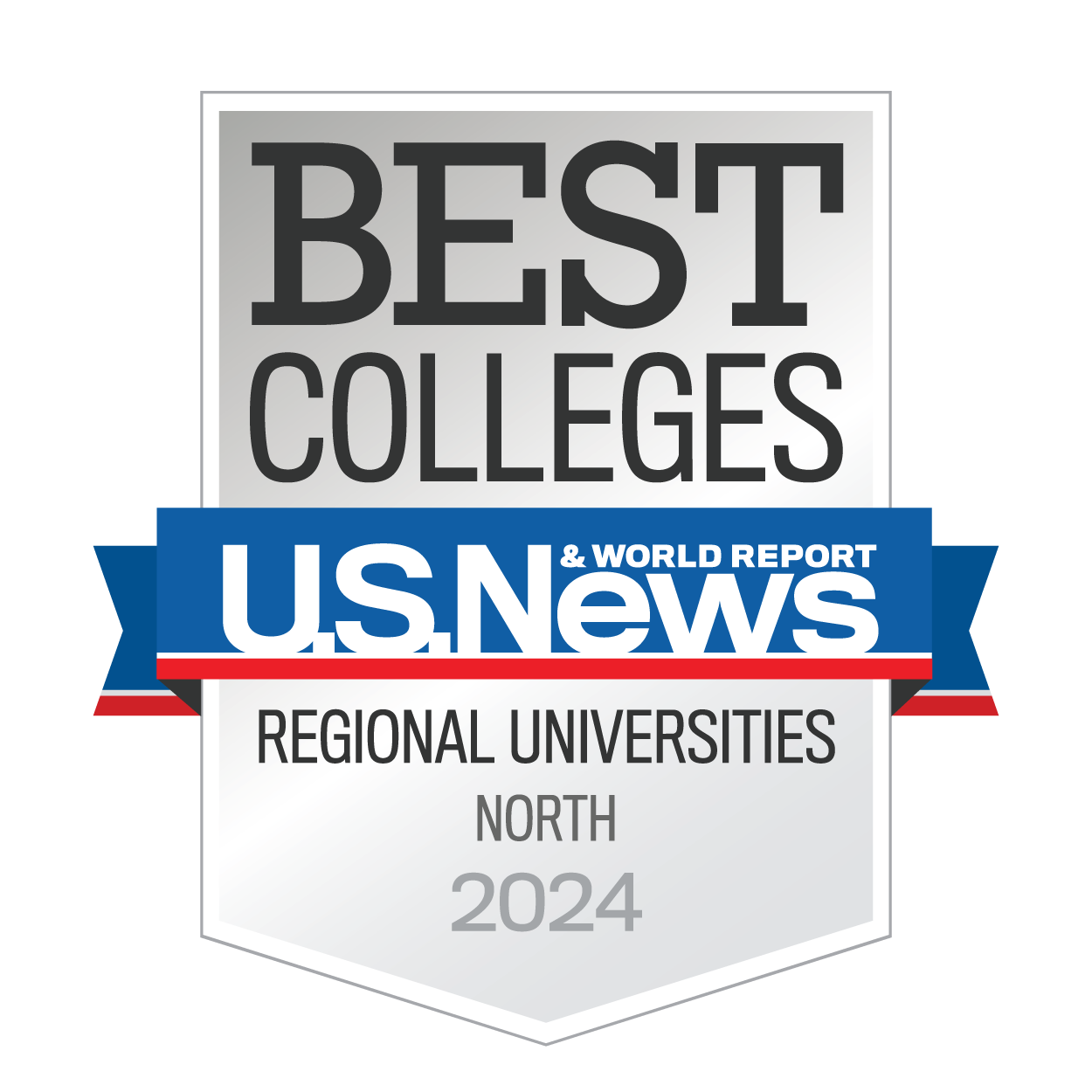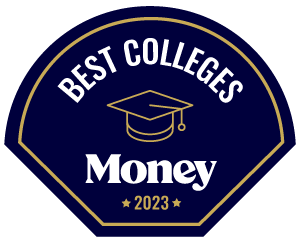Master of Education in Early Childhood Education
Relevant, Challenging Teacher Preparation for the Early Childhood Classroom
Earn your M.Ed. in Early Childhood Education
Our 36-credit Master of Education in Early Childhood Education prepares you for your Initial License to work in grades Pre-K through grade 2. Through coursework and field-based experiences, you will develop an understanding of subject matter knowledge, curriculum design, instructional strategies, observation and assessment, communication, and collaboration with families and the community.
This program is approved by the Department of Elementary and Secondary Education and is aligned with the Massachusetts Professional Standards for Teachers and Subject Matter Knowledge requirements.
Initial Licensure students who decide not to pursue their license will still be able to complete their degree as a personalized non-licensure master’s degree.
Learn more about Merrimack’s M.Ed. in Early Childhood Education.
Tuition-Free Teacher Education Fellowship
Graduate in One Year, Tuition-Free
As a K-12 teacher fellow, you’ll work in a partner school district for a full academic year, gaining unparalleled and invaluable field experience. You’ll engage in a range of classroom-based activities, including small group instruction, co-teaching, and ultimately, independent classroom instruction.
Fellows graduate in one year, tuition-free, and earn a Master of Education in Teacher Education and licensure in their area of specialization.
Available now for both on-campus and online students while spots are still available.
Learn MoreKey features of our Early Childhood M.Ed. program include:
Nine (9) courses
Your Early Childhood Education program is easy to complete through convenient self-paced and online courses. Merrimack College’s advanced degree format allows you to schedule school around your life, so you can advance your career while you work. You’ll earn a total of 36 credits through nine courses. Class schedules run for eight weeks and each course is worth four credits.
Immersion Events
Throughout the program, you will have the opportunity to participate in optional immersion events such as seminars, guest speakers, and networking sessions. These events provide online students with a way to engage and network with peers, faculty and leading educators in the field outside of the classroom.
Field-Based Experiences
Field-based experiences are an important part of your educational journey toward a master’s degree in Early Childhood Education. You’ll have the opportunity to learn in the classroom through three pre-practicums and a full practicum of 450 hours, which is the equivalent of 15 weeks. Field-based experiences are arranged at conveniently located schools in Massachusetts, close to home.
Your teacher education program specialist provides personalized support throughout your field-based experiences. Successful completion of the 15-week practicum contributes four credits toward your degree for a grand total of 36 credits.
Massachusetts Tests for Educator Licensure (MTEL) Exam Preparation Support
At Merrimack College, you will benefit from support and preparation assistance for the MTEL exams required for your Initial License in Massachusetts. MTEL preparation is built right into your program. The Early Childhood Education Concentration requires successful completion of the following MTEL exams:
- Communications & Literacy Skills (01)
- Reading Subtest
- Writing Subtest
- Early Childhood (72)
- Foundations of Reading (190)
Initial Licensure students who decide not to pursue their license will still be able to complete their degree as a personalized non-licensure master’s degree.
What Skills Will You Develop With M.Ed. in Early Childhood Education?
To earn your M.Ed. in Early Childhood Education, you will complete 9 courses, including your practicum, for a total of 36 credit hours. Classes are eight weeks long and self-paced for your convenience. Field-based experiences include three pre-practicums and one full practicum.*
*The practicum field experience is a full semester of 15 weeks, comprised of 450 hours.
The course will present the basic components of lesson planning using Understanding by Design (UbD). Students will learn techniques around differentiating instruction, including tiered instruction, scaffolds to accommodate differences in learning styles, needs, interests, and levels of readiness of students. Students will examine specific systematic behaviors teachers use to create orderly, cooperative, and motivating learning environments that promote student achievement.
Co-requisite (0 credits): ED 6500G – Pre-Practicum Field-Based Experience I
This course provides an overview of the challenges that students with moderate disabilities encounter in their lives. The class will explore how disabilities are identified, what necessary steps are taken to refer students for evaluations in the Special Education process, characteristics of students with disabilities, general issues of evaluation approaches, and research-based accommodations and interventions including the use of assistive technology devices and behavioral interventions. State and federal laws as well as an overview of local and national support agencies are also reviewed.
The course will address three major aspects of social studies. Initially, there will be a focus on the development of geography skills and global awareness through the study of five world regions and the convergence of environmental, cultural, political and economic systems of globalization. Secondly, the course will focus on developing history skills such as critical, creative and analytical thinking, problem solving, valuing, and decision making. Lastly, the course will apply cooperative learning, vocabulary and concept formation, and online resources to the study of the Social Studies. Throughout the course, there will be a focus on the organization of curriculum, instructional methods and student assessment processes.
The purpose of this course is to prepare teachers with the knowledge and skills to effectively design content instruction in order to support English Language Learners (ELLs) in accessing curriculum and achieving academic success as they prepare for their futures in the 21st century global economy. Throughout the course, effective research-based strategies will be modeled. Teachers will have opportunities to practice strategies, to analyze their practice, to provide and receive feedback, and to reflect on their own experiences. The course addresses three over-arching goals for teaching ELLs:
- To help teachers effectively carry out their responsibility for the teaching and learning of ELLs, as well as to understand the social and cultural issues that contribute to and impact schooling for ELLs.
- To expand teachers’ knowledge of how language functions within academic content teaching and learning, and how children and adolescents acquire a second language.
- Provide teachers practical research-based protocols, methods, and strategies to integrate subject area content, language, and literacy development using the Massachusetts English Language Development (ELD) standards and the World Class Instructional Design and Assessment (WIDA) standards to support ELL students’ success in meeting standards of the 2011 Massachusetts Curriculum Frameworks as well as the Common Core content standards.
This course is delivered in a hybrid model with on-ground elements delivered in person over a series of weekends. Alternate models for the completion of your SEI endorsement are available. Please contact the Program Director for more information.
Co-requisite (0 credits): ED 6507G – Pre-Practicum Field-Based Experience III
Students will undertake the gradual assumption of full teaching responsibilities in an early childhood education setting under the guidance of a Supervising Practitioner and a Program Supervisor. Students must complete at least 200 hours of full teaching responsibility and another 100 hours observing and/or assisting. Students must have a passing score on all required Massachusetts Tests for Educator Licensure (MTEL) exams and have successfully completed all graduate education courses prior to the practicum.
Co-requisite (0 credits): ED 6510G – Practicum Seminar
The course will introduce students to the biological, cognitive, and socio cultural theories of early childhood education from the period of prenatal growth through age eight. This course will examine topics including prenatal growth, infant health, language development, child care and schooling, play family life, learning assessment, differentiated instruction, and multicultural perspectives of early childhood development as relevant to educational practice. Students will engage in a comprehensive curriculum assignment that will encompass all areas of child development demonstrating their full understanding of the importance of quality early education.
This course introduces students to the foundations of teaching reading as defined by the national Reading Panel Report (NRPR). The foundational areas are phonemic awareness, phonics, fluency, vocabulary, and comprehension. The course uses these areas of study as a framework from which to address several other topics such as assessment (formal and informal), models of teaching reading/language arts, the writing process, and the developmental stages of reading, writing and spelling. Students will be expected to develop comprehensive standards-based units giving evidence of their understanding of curriculum, instruction, and assessment in the early childhood years. Field experience required.
This course focuses on the fundamental principles and concepts in a prekindergarten through grade two mathematics program that includes number sense, numeration, patterns and functions, geometry and measurement, and data analysis. Assessment strategies, adaptations for special needs and classroom management will be addressed. The course offers a comprehensive content knowledge of math that can be applied to real-life problem solving, communication, and decision making.
Co-requisite (0 credits): ED 6505G – Pre-Practicum Field-Based Experience II
This course is designed to increase your confidence and enthusiasm for teaching early childhood Science, Technology, Engineering, Arts, Math Health and PE. The integration of STEAM can be an essential part of an early childhood classroom not only to achieve key learning goals, but also as a means to engage and motivate students. Additionally, health and physical education and the related issues of obesity, wellness healthy foods and diet will be explored. Students will design an integrated curriculum for an inclusive early childhood setting using national, state and local standards and frameworks. Using inquiry focused investigations students will plan and assess appropriate learning experiences and learn strategies to modify and adapt lessons for the diversity of learners in the classroom.

Tune Into the Grad Chat Podcast
Check out a recent episode of the Grad Chat podcast and hear from a current M.Ed. student about their experience in the program.
Tune Into PodcastTuition and Financial Aid
M.Ed. in Early Childhood Education
$579
per credit*
36
credits
$20,844
tuition
*Tuition based on 2023-2024 academic year.
Tuition and fees are subject to change annually.
Additional program fees may apply.
Financial Aid
As a graduate student pursuing a master of education degree, you may qualify for federal support in the form of loans. We strongly encourage all eligible graduate students to apply for federal financial aid, even if they don’t demonstrate an exceptional financial need.
Complete the Free Application for Federal Student Aid (FAFSA).
Merrimack College’s FAFSA school code is 002120.
Partnership Discounts
Merrimack accepts employer financial/tuition assistance. We also offer partnership discounts. Contact us or ask your employer whether your organization is an official partner with Merrimack’s online programs.
It’s Easy to Apply Online
A complete application includes:
- Online application (no fee).
- Official college transcripts from all institutions attended.
- Resume.
- Interview or Personal statement.
- Contact information for one reference or one letter of recommendation.
GRE and GMAT scores are not required.
Key Dates and Deadlines
This program enrolls six times a year. Each term is eight weeks.
Merrimack College
Accolades and Accreditation
At Merrimack College, we’re proud of our long history of providing quality degrees to students entering the job market. Our faculty are more than just teachers. We are committed to helping you grow — academically, personally and spiritually — so that you may graduate as a confident, well-prepared citizen of the world.
U.S. News & World Report | Best Regional Universities North (2024)
- Most Innovative Schools (No. 14)
- Regional Universities North (No. 33)
- Best Undergraduate Teaching (No. 31)
- Best Undergraduate Engineering Programs (No. 86)
(at schools where doctorate not offered) - Best Colleges for Veterans (No. 14)
- Best Value Schools (No. 47)
NECHE-Accredited
- Merrimack College is accredited by the New England Commission of Higher Education (NECHE).



Tell me more about Merrimack’s online programs.